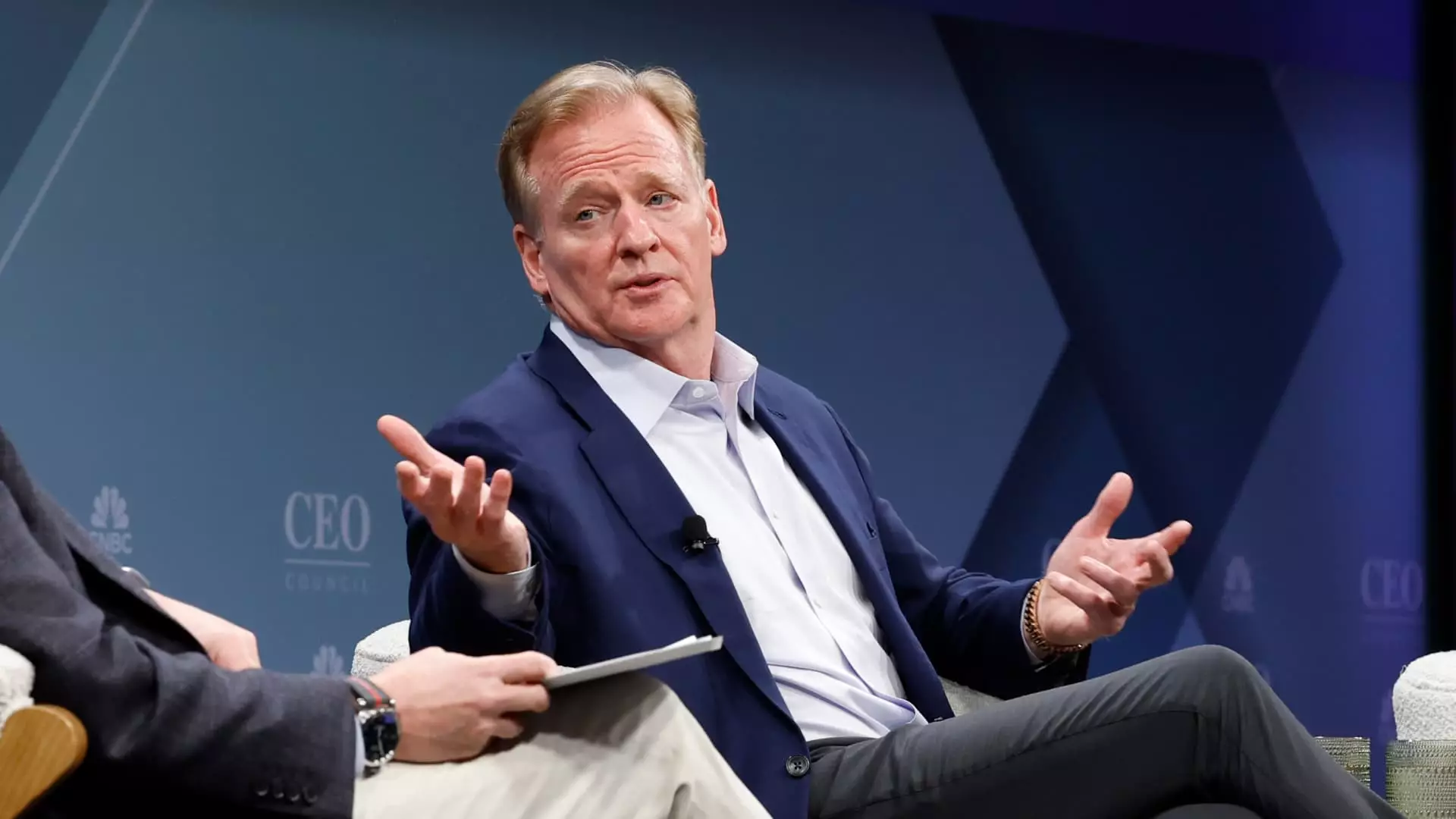The NFL is not simply a domestic behemoth; with Commissioner Roger Goodell’s recent declaration to host as many as 16 games per season internationally within the next five years, it’s clear the league aims to transform its operations into a global phenomenon. The ambition is audacious, yet it’s rooted in the reality that American football has a growing audience worldwide. Currently, the NFL’s reach is supported by over 200 million fans in the U.S., but the international market represents an untapped goldmine, just waiting to be mined. The need to capitalize on this potential makes one wonder if the NFL is genuinely committed to global expansion or simply chasing headlines.
Maximizing Revenue Streams
The undercurrents of private equity involvement in the NFL provide an insight into how revenue generation strategies are evolving. The recent acceptance of private equity investments, which allows select firms to acquire up to a 10% stake in teams, signals a shift away from traditional ownership models. With an average franchise valuation now hovering around $6.49 billion, it’s evident that fiscal prowess is becoming as essential as athletic performance on the field. The financial landscape of the league appears less focused on the game itself, but more about maximizing profits—a necessary evolution, perhaps, but one that could ultimately overshadow the sport’s integrity.
Goodell’s comments regarding the NFL’s structure raise questions about the long-term effects of such investments on the authenticity of the game. While liquidity provided by private equity can aid teams through tough economic climates, there’s a risk that the sport could become increasingly dominated by financial strategies rather than competitive spirit. This venture into international competitions further complicates matters – as the NFL seeks to establish its brand on foreign shores, can it do so without compromising its core values?
Tourism: A Hidden Goldmine
As Goodell spoke alongside Marriott’s CEO, Anthony Capuano, the discussion of sports-related travel bearing over $50 billion annually was particularly illuminating. The convergence of tourism and sports offers immense potential for revenue generation, particularly when coupled with international games. However, this raises additional concerns. The excitement surrounding the NFL’s expansion is somewhat dulled by the question: Will the focus on fan engagement and experience be overshadowed by the demand for profit? Will the local cultures that host these games be appreciated or merely exploited for economic gain?
Moreover, while the push for international engagement sounds impressive, one must consider the complexities involved. Establishing a loyal fan base in countries where American football is still viewed as a niche sport poses a significant challenge. The NFL must tread carefully to create sustainable interest rather than mere one-time attendance at games, which could lead to financially profitable but culturally hollow developments.
The Irony of Popularity Amid Economic Challenges
Interestingly, Goodell downplayed the potential negative impacts of ongoing economic issues such as inflation and consumer sentiment on the NFL. However, this viewpoint might be somewhat disconnected from reality. While the league has reported record revenues, it’s crucial to assess whether this trend can persist amid growing financial uncertainties across the country. Will the millions of loyal fans continue to prioritize expensive tickets and merchandise when faced with tighter budgets?
Goodell’s optimism could be seen as a reflection of a certain privilege enjoyed by the NFL, rooted in its established monopoly on football entertainment in the U.S. Yet, the assertion that the NFL’s content will continue to experience unrelenting demand begs the question of whether the league is becoming complacent in its operation. In a landscape where consumers are becoming increasingly selective about their spending, an overreliance on the historical popularity of the sport could backfire.
While the NFL’s ambition to stretch its reach internationally is commendable—and even a strategic necessity for revenue diversification—there’s an underlying tension that cannot be ignored. Balancing the influx of private investments, expanding global presence, and ensuring that the game’s essence remains intact is no small feat, and only time will reveal whether the NFL emerges as a true champion of both sport and business in the international arena.


Leave a Reply